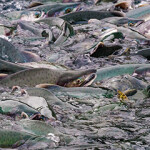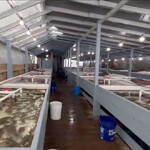Oceana: Seafood mislabeling rampant in L.A.
More than half (55 percent) of the seafood tested in the Los Angeles area as part of a new Oceana investigation was mislabeled.
Last May and December, Oceana staff and volunteers collected 119 seafood samples from grocery stores, restaurants and sushi bars in Southern California’s Los Angeles and Orange counties. Among the species tested using DNA analysis were wild salmon, red snapper, yellowtail, white tuna and a variety of soles, including Dover sole.
Fraud was detected in 11 out of the 18 different types of fish purchased. Every single fish sold with the word “snapper” in the label (34 out of 34) was mislabeled, according to federal guidelines. Additionally, nearly nine out of every 10 sushi samples were mislabeled, and eight out of nine sushi samples labeled as “white” tuna were actually escolar, according to Oceana.
In the report, Oceana urged the federal government to increase the number seafood inspections and require seafood traceability; the Washington, D.C.-based NGO also recommended that the public be provided with more information about seafood.
Oceana also found seafood mislabeling to be rampant in Boston-area supermarkets last October when it released a similar report. Tuesday’s Oceana report was picked up by the Los Angeles Times. Seafood fraud has received a lot of attention from the mainstream media in the United States since the Boston Globe ran a two-part exposé last October.
Earlier this year, California Sen. Ted W. Lieu (D-Torrance) introduced legislation, sponsored by Oceana, that would require large restaurant chains to accurately label their seafood by species, country of origin and method of production (farmed or wild). Large retailers like supermarket chains are already required by federal law to do so.
“The extend of seafood fraud found in California should be shocking to consumers, especially those that are paying extra for seafood they think is healthier and more sustainable,” said Geoff Shester, Oceana California program director. “If enacted, this bill would provide a powerful first step to help turn the tide of seafood fraud.”





Share